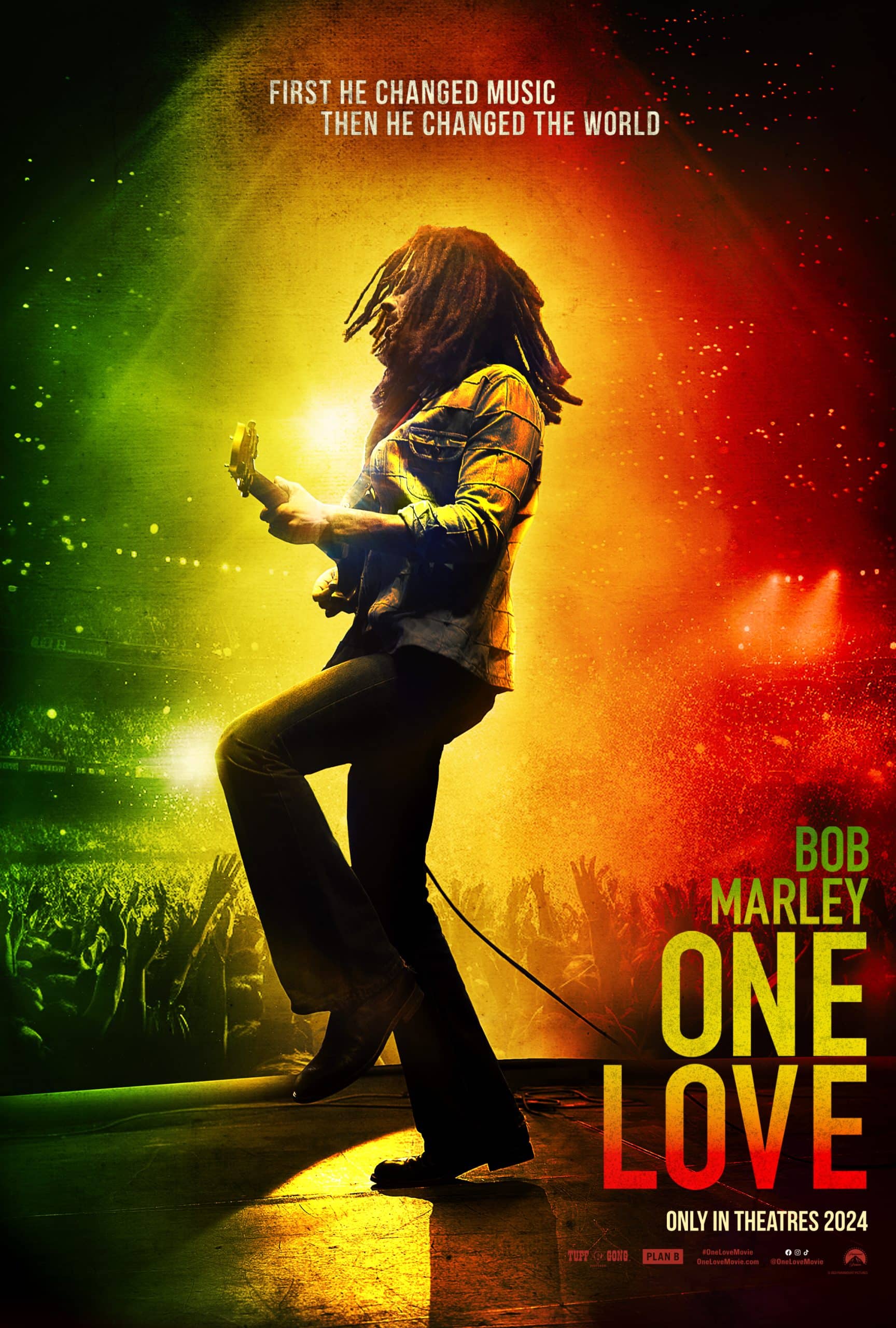
- Starring
- Kingsley Ben-Adir, James Norton, Lashana Lynch
- Writers
- Terence Winter, Frank E. Flowers, Zach Baylin, Reinaldo Marcus Green
- Director
- Reinaldo Marcus Green
- Rating
- PG (Canada), PG-13 (United States)
- Running Time
- 104 minutes
- Release Date
- February 14th, 2024
Overall Score
Rating Summary
Famously, among Bob Marley’s final words were those to his son Stephen, when he laid on his deathbed and whispered four words that would forever endure as an encapsulation of the reggae star’s ethos: “Money can’t buy life.” The tragic poignancy of this rejection of the easy answers adds an equally tragic irony to the prospect of Marley being the subject of a dime-a-dozen, musical biopic cash-in, but Bob Marley: One Love aims to present itself as a respectful rendition of the famed musician’s life, hoping to stay true to his message of compassion and unity. Through all its talk of the message and the music taking precedence over all else, Reinaldo Marcus Green’s film is certainly convinced of its own respect for Marley’s legacy; but respect for a subject doesn’t necessarily translate into a meaningful perspective on what they stood for.
Rather than presenting the standard cradle-to-the-grave format of tired musical biopics, One Love begins in 1976 on the eve of Marley’s (Ben-Adir) performance at the Smile Jamaica show, a concert aimed to unify the volatile political factions of his home country at the time. Already the biggest star at home, Marley’s tumultuous lead-up to this controversial event led to an assassination attempt on him and his wife Rita (Lynch), and while he’s still able to perform, the trauma of the shooting leads him abroad to seek out personal growth in the face of a country tearing itself apart. In this moment, audiences follow Marley’s European exile as he and his band attempt to harness these hardships into their international breakout record, Exodus.
It’s been said many times, especially recently, that the best approach to a biographical film is to focus on a specific period in the person’s life—a particular moment in their journey that cuts through all the bland, Wikipedia-style ramblings and delivers a succinct reading of who this person was at their core. In starting with Marley at the height of his fame, One Love seems to heed this advice at first. But this is where Green and his bevy of screenwriters get clever, for this particular moment in the mid-’70s does in fact find Marley at the height of his fame… in his native Jamaica, that is. Worldwide, Marley’s name still had new peaks to reach, so after this refreshingly disarming setup, the film traps audiences back into the same montage-heavy success story they have seen time and again; with the film’s selective use of formative flashbacks, Green simply rearranges the tired formula nonlinearly, offering as his “distinct” vision virtually the same rubric seen to the tune of Johnny Cash’s guitar, Elton John’s piano or the seismic power of Freddie Mercury’s moustache.
Narratively, Bob Marley: One Love has little creativity to bring to the recording booth, and visually, the film comes up just as empty. Robert Elswit—most famous for his energetic work with Paul Thomas Anderson—shoots the story with a surprising anonymity uncharacteristic of a film that opens with the Paramount logo tinted with the colours of the Jamaican flag, while the reggae soundtrack runs through just about all the hits one would expect from a film of this sort; at least Ben-Adir sounds like he’s actually performing these jams. To that end, as is customary, One Love follows the tradition of its forebears in being most significant as a showcase for its leading actor’s transformation. Ben-Adir probably won’t be sweeping any prizes—and the film’s shift from its awards-friendly limited January release to an innocuous Valentine’s Day drop hints that the studio didn’t think so, either—but his respectably tame but enriched embodiment of Marley’s mannerisms never once leaves one distracted with reminders that they are watching the same guy who played Malcolm X less than four years ago.
There are certainly flashes within Bob Marley: One Love of a film that wants to have a genuine personality (at least after getting past its hilariously generic title); in particular, Reinaldo Marcus Green’s utter refusal to dilute the characters’ Jamaican patois dialect for a Euro-American audience points to a desire to stay true to the spirit of his subject and the honesty he stood for. That being said, all semblance of passion that ostensibly comes from Marley’s own relatives taking on producer roles is dissipated by their refusal to take any chances on material that hits so close to home. As with most biopics, One Love depicts a period in its subject’s creative process where they began to experiment and deviate from the norms that were beginning to grow stale; as with most biopics, One Love, in its own artistic path, fails at that exact task.
still courtesy of Paramount Pictures
If you liked this, please read our other reviews here and don’t forget to follow us on Twitter or Instagram or like us on Facebook.
Discover more from
Subscribe to get the latest posts sent to your email.
